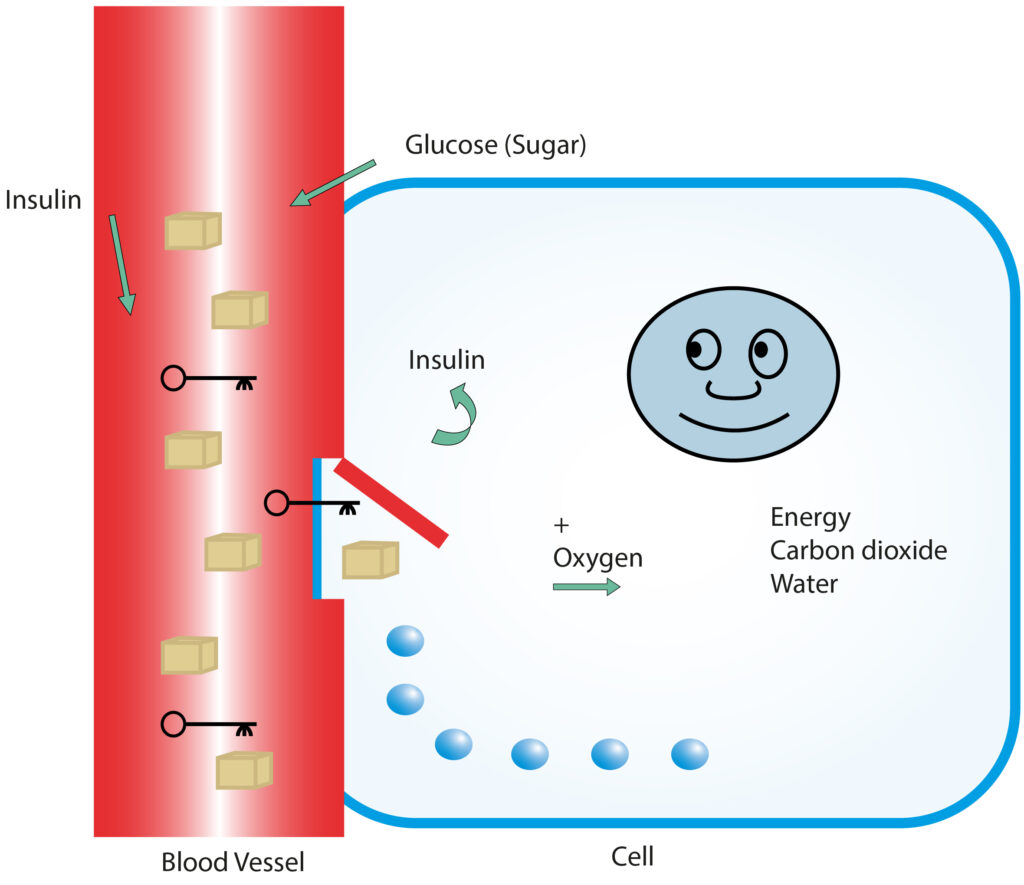Diabetes1https://www.nhs.uk is a condition where the amount of glucose (sugar) in the blood is too high and the body is not able to use glucose for energy effectively. When we eat carbohydrates, this breaks down into glucose. We need glucose for energy.
Diabetes is when the body is no longer able to produce insulin (type 1) or not enough insulin is being produced and the insulin does not work properly (type 2) and this is known as insulin resistance.
Insulin is a hormone produced by the beta cells in an organ in the body called the pancreas. Insulin allows glucose in the blood stream to enter the cells and the muscles, where it is used as fuel for energy.
Insulin acts as a key that unlocks the cells to allow glucose to enter so that we can use the glucose for energy.

What is diabetes?
Please see link to access Diabetes UK’s film describing what diabetes is.
Insulin acts as a key that unlocks the cells to allow glucose to enter so that we can use the glucose for energy.
- 1